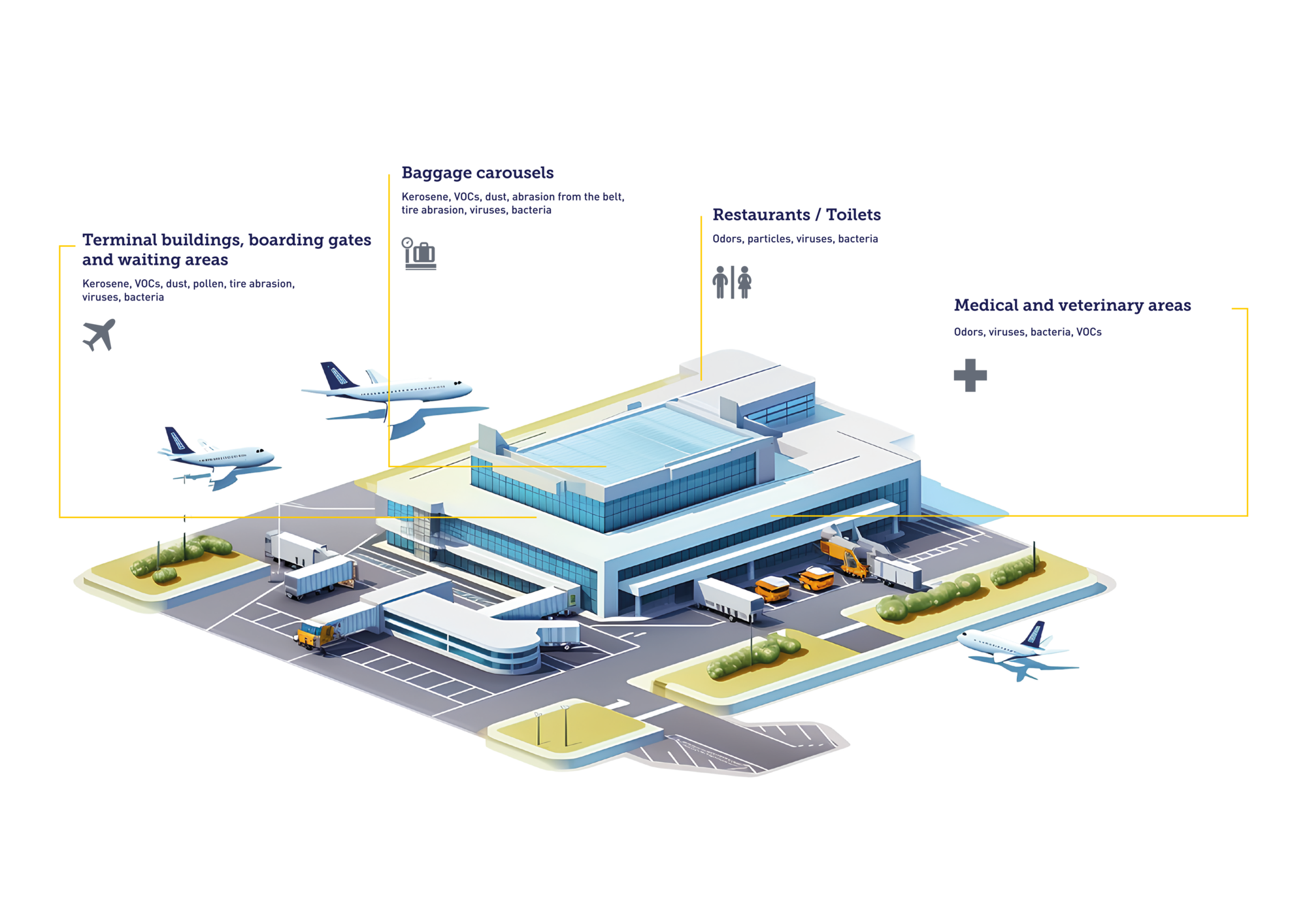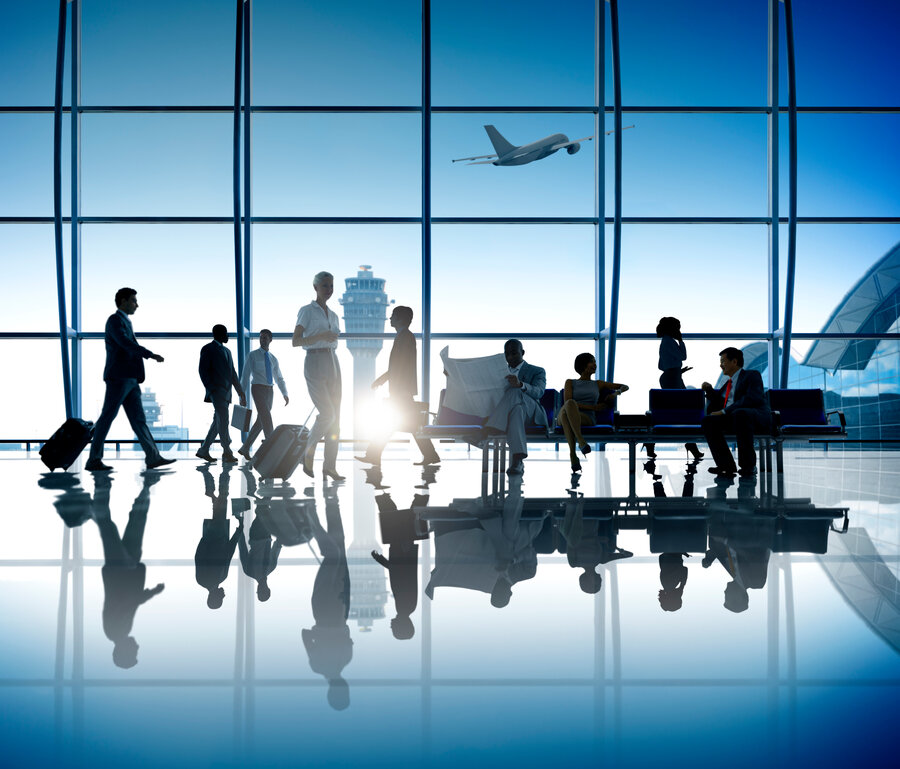In the dynamic environment of an airport, air quality is a decisive factor for the comfort and health of passengers. The pandemic in particular has raised awareness of good air quality. For airport operators, investing in clean air is also an investment in a future-oriented travel experience.
Airports are highly polluted environments. From tire abrasion from ground vehicles, kerosene fumes from engines and hazardous hydrocarbons to volatile organic compounds and skin particles from passengers, viruses and bacteria - the air around an airport contains a variety of particles and gases that are hazardous to health. These pose a health risk to employees and travelers.
Our filter solutions ensure energy efficiency, reduce overall operating costs and protect the health of passengers and staff. Our portfolio includes suitable ePM1 filters for central air handling units or roof ventilation systems and Activated Carbon filters (AMC) for the molecular filtration of kerosene gases or other volatile organic compounds (VOCs). Our products meet strict environmental standards such as EN 16798-3 and ISO 16890.
Cost efficiency for clean air
Reducing particulate pollution at airports is crucial for health and economic reasons. Efficient filtration helps to manage this trade-off.
Control of air pollutants
Airports are confronted with a variety of pollutants, including aircraft exhaust and pollutants from ground vehicles. Tailor-made filter solutions ensure clean air. This protects passengers and employees.
Sustainable with good air
Green airports rely on environmentally friendly measures and use advanced technologies to clean the air, minimize emissions and promote the sustainability of air traffic.




















